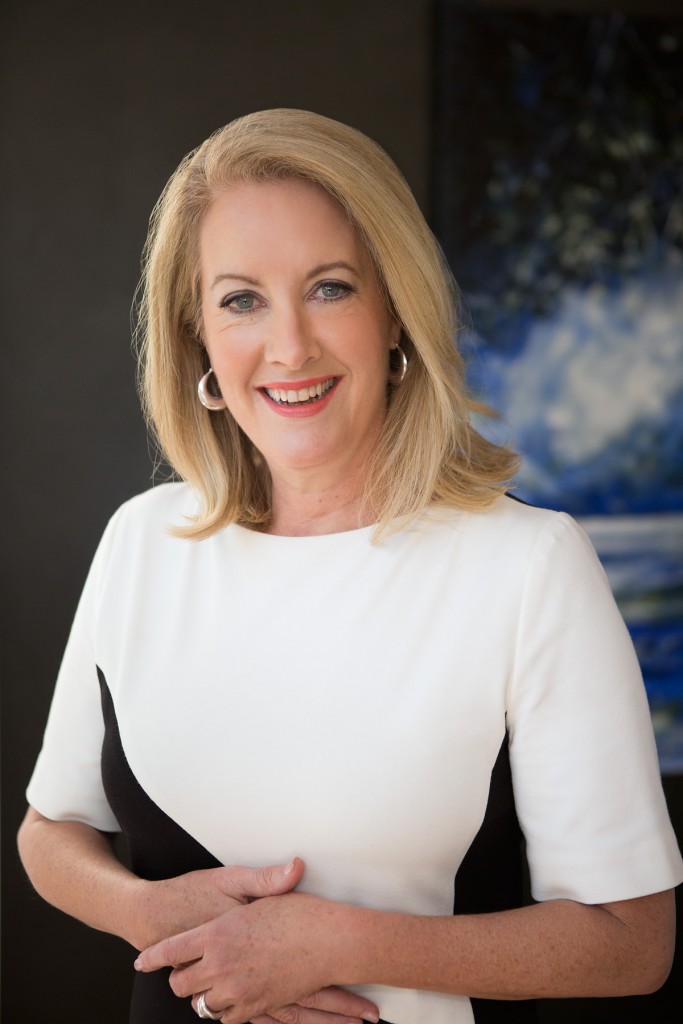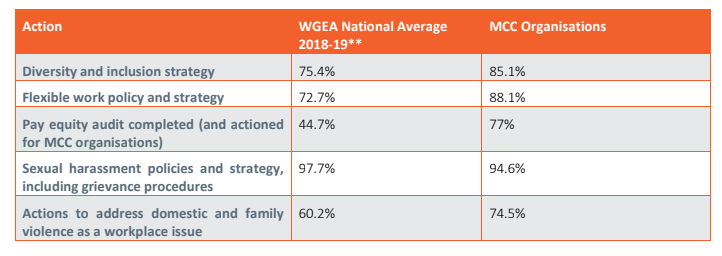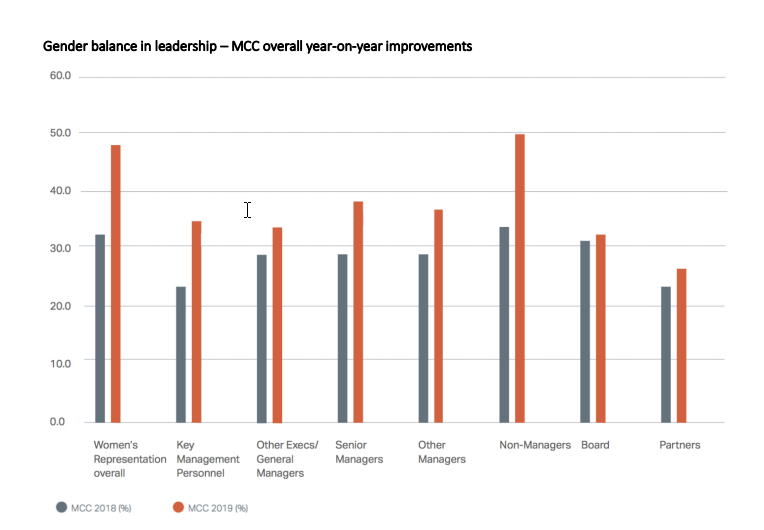Improvement in women's representation comes across every major employment category
MALE Champions of Change (MCC) have released their annual Impact Report (FY2018-19) detailing progress and outcomes in achieving gender equality, advancing more women into leadership and building respectful and inclusive working environments for all employees.
The report is believed to be one of the largest, voluntary public disclosures on gender equality in the workplace globally, representing 230 men and women CEO and Board-level leaders and organisations operating across 155 countries.*
The results show collective year-on-year improvements on gender equality in every major employment category (see page 3 for more detail). Other key outcomes across the MCC coalition include: 
- 81.5 percent of members have achieved or improved gender balance overall;
- 82.9 percent have rates of women’s promotions that are either gender balanced or greater than women’s representation overall;
- 74.6 percent have achieved gender balance in recruitment that improved women’s representation in the past year;
- 62.4 percent have achieved or improved gender balance in key management personnel – roles such as chief financial officer and chief operating officer which are often on the critical pathway to CEO and board-level positions.
According to Male Champions of Change founder Elizabeth Broderick, the results show the impact of collective action from the top to accelerate change on gender equality, together with clear opportunities for improvement.
“We need more intentional and disruptive work on the issue of sexual harassment and while that has commenced across the coalition, we keenly await the findings of the Australian Human Rights Commission’s National Inquiry into Sexual Harassment in Australian Workplaces being led by Commissioner Kate Jenkins," Ms Broderick said.
"Similarly, achieving gender-balanced executive teams and more women in CEO-level positions requires ongoing focus,” she said.
More generally, according to Ms Broderick, the report shows the immense power of more than 200 organisations with national and international reach acting together to shift entrenched workplace systems that have served as barriers to women’s advancement.
“What we’ve found is that making work more accessible and inclusive for women, is delivering wider benefits for organisations, teams and employees," Ms Broderick said.
“For example, 89.2 percent of MCC members now provide flexible access to parental leave through policies which recognise and celebrate the role of each parent in the care and development of their children.
“88.1 percent of MCC members are supporting employees to better manage their work and life commitments through flexibility strategies that are available to all. Here, what we’ve found is that - when combined with enabling technology – flexibility can build employee engagement and improve workforce participation amongst a wide range of groups who might otherwise be excluded,” Ms Broderick said.
At an aggregate level, MCC members are well-ahead of the national average on many of the lead indicators that are measured in the latest scorecard from the Workplace Gender Equality Agency (WGEA). For example, 77 percent of MCC organisations are conducting and acting on regular pay equity audits compared to 44.7% of organisations that report to WGEA (see table).
The 2019 MCC Impact report also:
- details work undertaken over the past 18 months by MCC members to better understand and address the issue of sexual harassment in the workplace;
- describes major initiatives led by specific MCC groups on issues such as the under-representation of women in the STEM sector and pay equality for elite women athletes;
- provides a detailed account of progress on women’s representation across all levels for participating organisations;
- shares case studies from organisations across a range of sectors, including large and smaller businesses;
- demonstrates how coordinated action impacts performance on gender equality.
Commenting on the report, chair of Manufacturing Australia and Male Champion of Change  said, “The progress we have made affirms for me the impact we can have when: men step up beside women on gender equality; the most senior leader makes gender equality a strategic business priority; there is sustained focus; and we collaborate outside our usual networks for new and different solutions."
said, “The progress we have made affirms for me the impact we can have when: men step up beside women on gender equality; the most senior leader makes gender equality a strategic business priority; there is sustained focus; and we collaborate outside our usual networks for new and different solutions."
The MCC Impact report is aimed at all those interested in advancing gender equality and tracking progress of the MCC strategy.
The 2019 MCC Impact Report (Click here for Summary Report)
*The Philippines and Insurance groups are new to the MCC coalition and will be included in the MCC Impact Report in 2020.
**For full transparency, and where possible, MCC benchmarks its data against results arising from the 2019 Workplace Gender Equality Agency’s (WGEA) Scorecard. The WGEA scorecard is the result of compliance reporting by Australian private sector employers with more than 100 employees, and is a globally-unique data set, now in its sixth year of publication. While not completely alike due to our international and public sector members, we believe this is a useful comparison to include.
ends 


 How to resolve AdBlock issue?
How to resolve AdBlock issue?